
It’s a win-win situation
We all know we should be good to the environment, but the benefits sometimes don’t seem like enough of a draw when being green is inconvenient. But here’s the thing: Green living is clean living, and every step you take to be kind to the environment pays you back in health benefits. Read on to find out how being good to Mother Earth is good for your mind, body, and soul.
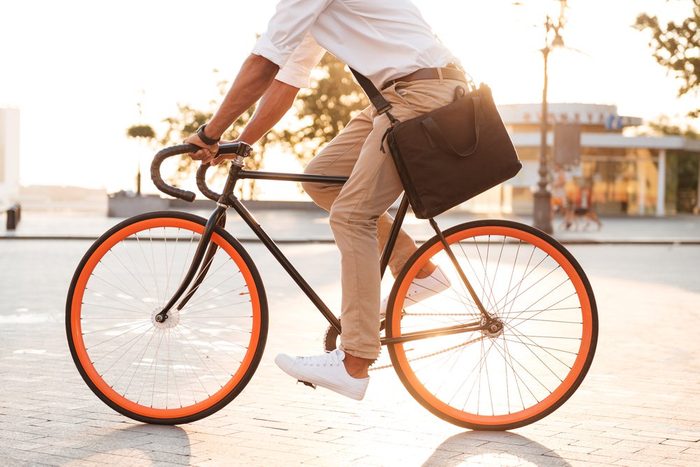
Biking to work can reduce stress
Leaving your car at home and getting to the office by foot or bike helps you burn less gas, but it can also have a double dose of benefits for your body and mind. You’re burning calories in a time when you’d normally be sitting in traffic, but that’s not all: A study of 123 Canadian employees found that those who had cycled or took public transportation instead of driving had the lowest levels of stress 45 minutes into the workday. Thinking of buying a road bike? Here’s everything you need to know.

Using natural light boasts productivity
It’s not in your head that the fluorescent lights in your office feel totally depressing. In a small study, volunteers worked from 12 p.m. to 8 p.m. in a room either mainly lit either by daylight or artificial light. By the second day in those conditions, those who were taking advantage of sunlight were less sleepy at the end of the workday and performed better on cognitive performance tests. Keep the blinds open and you’ll cut your energy bill and feel more energized.

Eating less red meat could lengthen your life
A study of more than 120,000 men and women found that the more red and processed meats they ate, the more likely they were to die of any cause, including cancer and heart disease. Subbing beef out for poultry or plant-based protein can help you avoid risks like diabetes and stroke, but it’s also doing your part to reduce greenhouse gases. Cattle use more grains and produce more methane than chickens or pigs, and some experts say that giving up beef would be even better for the Earth than giving up your car. Try these other 50 easy habits that will help you live longer.
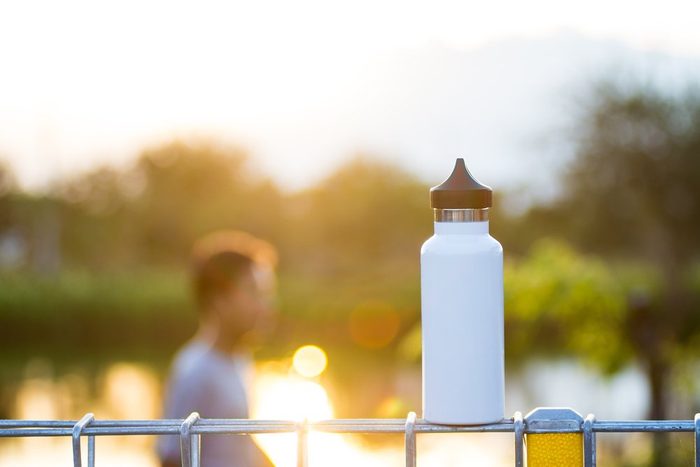
A reusable water bottle could keep your body functioning normally
Canadians use approximately 2.5 billion litres of bottled water every year, according to Waste Reduction Week in Canada. And switching to a reusable water bottle will not only keep that plastic out of landfills (or cut energy that would normally go toward recycling it), but it can also keep your hormones functioning in the way they should. You might have already heard that bisphenol A (BPA) might disrupt estrogen, but even though manufacturers are shying away from the chemical, some evidence suggests that one of its substitutes, fluorene-9-bisphenol (BHPF) can block hormones too.

Local produce could mean more nutrients
You’ve heard all about the perks of buying local—you support small businesses and get food that’s as fresh-from-the-farm as it can be. But is there anything really in it for you except a sense of well-being for doing farmers a favour? You bet! The produce in your supermarkets probably spent days in transit before finally reaching your local grocer, and even then it’s spent a few days on the shelves before you take it home—and all the while it’s been losing nutrients. By picking it up from your farmer’s market, though, it can spend less time just reaching its destination, so it’s still in peak ripeness by the time you buy.
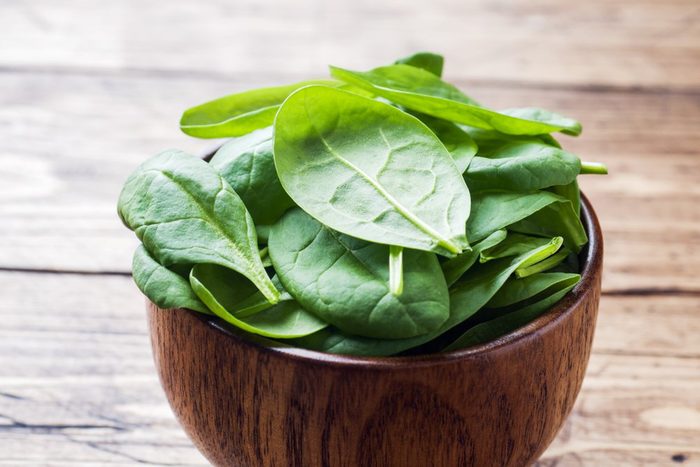
Seasonal foods pack in vitamins
Researchers analyzed the nutrient levels of fruits and vegetables at different times of the year and found that season played a crucial role in their health. (Vitamin C in spinach was 55 percent higher in the winter, for instance.) Part of that could have to do with the very reason it’s better for the environment: It doesn’t have to travel so far. If the food had to grow in a warm, faraway area before reaching your grocery store, it could have spent time on a ship, plane, or truck. Some options are better than others—a plane gives off more emissions than a ship, for example—but buying in-season is an easy rule of thumb for making sure your food doesn’t have to travel far to get to you. Make sure you know these 10 easy ways to reduce waste.

Turning electronics off at night can help you sleep
Shutting off lights and electronics at night can save on your energy bill and allow you to be sharper the next day. A small study from Korea found women who slept in dim light at night didn’t snooze as long, and their quality of sleep wasn’t as good. The researchers concluded that keeping the lights or TV on could interrupt a good night’s sleep. Find out how exposure to blue light (from your electronic devices) can also affect your health.

Growing a garden gives you tasty, eco-friendly food
If you make space for a garden in your yard, the environment will thank you. A garden provides space where native plants can attract bees—and considering about 35 percent of crops rely on pollinators like bees to help them thrive, helping bees thrive is a big environmental concern—and where you can grow your own produce. Anything that only needs to travel as far as your backyard to your table is using fewer fossil fuels than anything that had to go from a mass-production farm to a supermarket (and then your table). And if those tasty, fresh veggies weren’t enough of a pull, gardening is a therapeutic activity for some and can even burn 200 to 400 calories an hour.
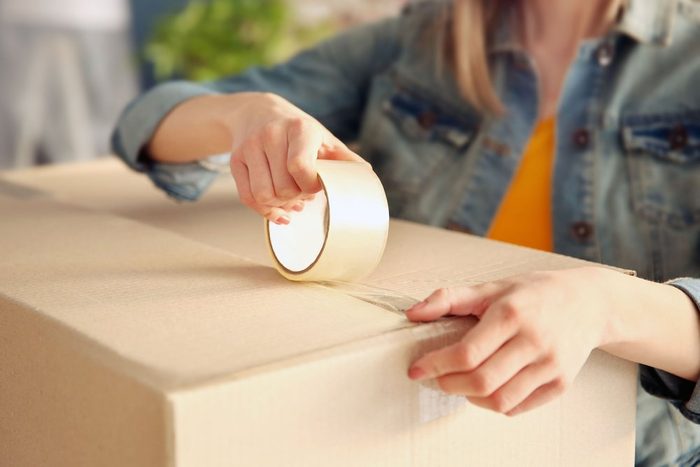
Getting rid of your old stuff can give you peace of mind
Thrift stores are an eco-friendly way to shop. Instead of creating new clothes and home goods out of new materials, you can just pass along the perfectly usable items that you don’t want anymore. And as you purge, you’ll likely give yourself a mental health boost too. Studies have linked high levels of clutter to a drop in life satisfaction and a spike in the stress hormone cortisol.
If you’re having trouble decluttering your home, here are a few pro tips.

Signing up for e-bills reduces clutter
If clutter is stressing you out, a growing pile of mail only adds to your mental anguish. Sign up to replace paper bills with email reminders, and unsubscribe when you can from junk mail. Use DMAchoice to take yourself off the list for entire categories (think catalogs or ads) for a small $2 fee. It’s one less thing for you to worry about and fewer trees lost.
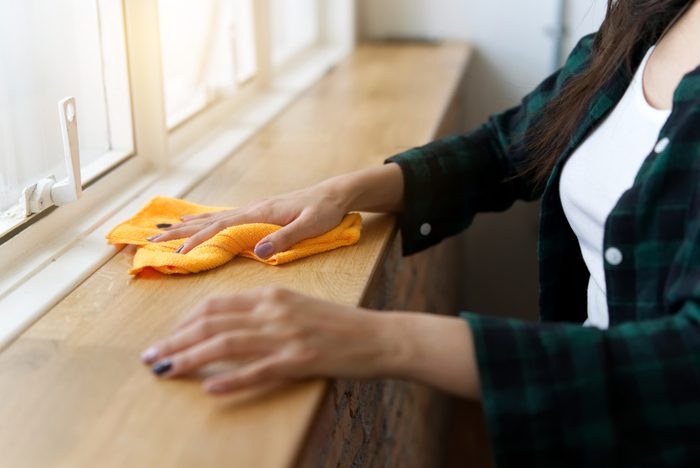
Making your own cleaning products eliminates irritants
A dirty, dusty home is no good for your health, but cleaning products pose their own slight risks. Some of the chemicals in certain cleaners can irritate the eyes and throat and cause headaches, according to the American Lung Association (ALA). There’s also a small threat of those cleaners getting into rivers and lakes, decreasing the water quality, according to the Environmental Protection Agency (EPA). The ALA recommends using simple warm water and soap, baking soda, or vinegar as homemade cleaners. Or try one of these eco-friendly cleaning products.
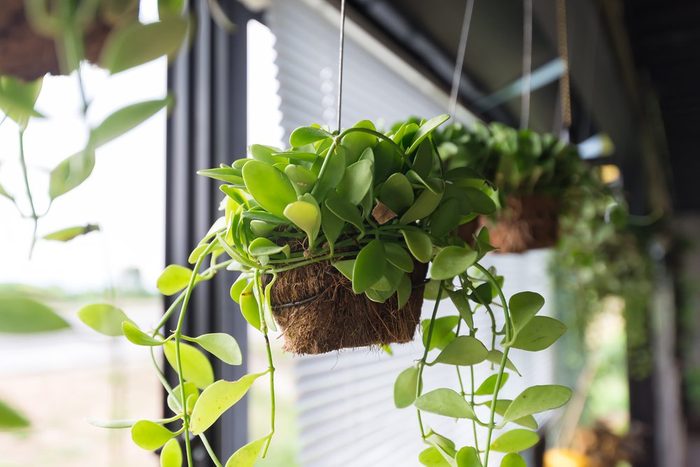
Growing plants indoors will make you feel good
Putting your green thumb into action inside won’t just look nice—those indoor plants will improve your mood. Research shows that plants reduce irritating volatile organic compounds (VOCs) in the air. Some scientists say a plant or two won’t make much difference to your home’s air quality, but even so, other studies have shown that having plants around can boost feelings of well-being. Don’t miss the best air-purifying plants for your home.

Saying “no” to straws could make you look better
Scientists estimate that there are 8.3 billion plastic straws strewn around coastlines worldwide. Plenty of companies are catching on and going straw-free or using paper straws, but there’s an anti-aging reason for skipping straws altogether: Some experts say drinking from a little tube could give you wrinkles when you purse your lips and make you bloat by sucking in air before the liquid reaches your mouth. Next, check out more reasons why plastic straws are actually the worst.
